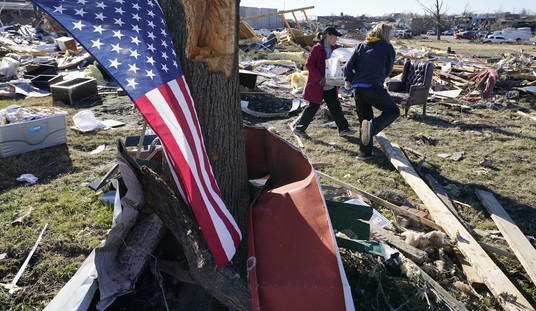Blake Robbins, a Pennsylvania high school student who found out his school district was taking hundreds of photos of him by remotely turning on his school-issued laptop, is a poster child for an ACLU-inspired, bipartisan coalition that is working to protect Americans’ online privacy at the state legislative level.
The ACLU also points to the case of Mississippi middle-school student Richard Wade. He was accused of “gang-related activity” when his cell phone was confiscated by a football coach who discovered a video of Richard and a friend dancing in a bathroom while another student held a BB gun.
Wade was suspended and then expelled from school.
It isn’t just teenagers who might not realize the impact of what they do online who need to be protected.
The ACLU has also taken up the case of Robert Collins. He was forced to give up his Facebook password to the Maryland Division of Corrections as part of his recertification as a state corrections officer.
The cases of Wade, Collins and Robbins are only three examples of Americans whose lives are being affected by digital snooping, according to ACLU Executive Director Anthony D. Romero.
As a result, Romero said legislators in 16 states and the District of Columbia are going where the federal government fears to tread.
They simultaneously introduced legislation Jan. 20 that is designed to keep the prying eyes of the government, business and schools away from citizens’ digital lives. The bills would cover a broad range of issues including student and employee data privacy, location tracking and electronic communications.
“Congress has been largely asleep at the switch,” said Romero. “This movement is about seizing control over our lives.”
Romero said more than 100 million people would be covered by the new protections in Alabama, Alaska, Connecticut, Hawaii, Illinois, Massachusetts, Michigan, Minnesota, Missouri, Nebraska, New Hampshire, New Mexico, New York, North Carolina, Virginia, and West Virginia, plus the District of Columbia.
“This is a preemptive strike,” Rep. Peggy Scott (R), part of a bipartisan effort to introduce the privacy legislation in the Minnesota House, told WCCO-TV. “We want to protect people before they are damaged by personal information getting out to the wrong hands.”
North Carolina State Rep. Duane Hall also introduced privacy protection legislation on Jan. 20. It is the second time he has tried to get the North Carolina Legislature to approve a proposal to stop schools from forcing students to give up Facebook passwords or other social media access.
“We have a fundamental right to privacy,” the Wake Forest Democrat told WFAE in Charlotte, “but I’m afraid we haven’t been able to keep up with this in the digital age.”
However, as with any debate over privacy, especially in the age of lone wolf terrorism, there is a wide swath of gray between the margins of black and white painted by the ACLU.
What if digital snooping saves lives?
NSA Director Gen. Keith Alexander said in 2013 the collection of phone records that was stopped after the Edward Snowden revelations had prevented 54 terrorist attacks around the world, 13 of them in the United States.
Remember the furor that arose when the federal government was criticized for not snooping enough, for not catching the Facebook posts of Tashfeen Malik and Syed Rizwan Farook, the couple who slaughtered 14 people in San Bernardino?
Tashfeen Malik was said to have posted her allegiance to the leader of ISIS on her Facebook page during the massacre.
Previous Twitter postings, critics charged, should have led federal officials to stop her from ever coming to the U.S.
So are there times that digital snooping is good?
Five students were shot to death at a high school in the state of Washington in 2014. At first blush, it was one of those tragic cases of violence that no one saw coming. The shooter was a favorite football player who was also the school’s homecoming prince.
His friends called Jaylen Fryberg “happy.” Teachers said he was a “really nice kid.” But if they had been monitoring his Twitter feed, they would have seen an entirely different side of this model student who was destined to become a homicidal maniac.
If only someone, the government or the school district, had been following his social media accounts, five lives could have been saved.
“It’s rarely an isolated incident,” Gary Margolis of Social Sentinel Inc., a social media monitoring service provider, told Campus Safety Magazine. “There’s always a pattern.”








Join the conversation as a VIP Member